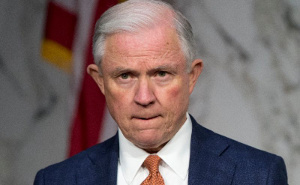Reports that the US is about to bring charges against WikiLeaks founder Julian Assange appear to be just the tip of the iceberg, with Attorney General Jeff Sessions saying he wants to put people in jail for publishing classified leaks any time a “case can be made.”
 Where a case can be made is the tricky part, as despite years of demonizing publishers of embarrassing leaks, constitutional assurances of freedom of the press likely preclude any move against journalists for publishing newsworthy information, and as Assange lawyer Barry Pollack pointed out, there is no basis for treating WikiLeaks any different from any other publisher.
Where a case can be made is the tricky part, as despite years of demonizing publishers of embarrassing leaks, constitutional assurances of freedom of the press likely preclude any move against journalists for publishing newsworthy information, and as Assange lawyer Barry Pollack pointed out, there is no basis for treating WikiLeaks any different from any other publisher.
That’s a big part of why years of looking into leaks by the Obama Administration never led to any actual charges for publishers, and then-Attorney General Eric Holder conceded that it was unlikely they’d ever charge anyone with violation of the Espionage Act for journalism.
CIA Director Mike Pompeo may have given some insight into the path the Trump Administration is going, saying that Julian Assange has no First Amendment rights because he’s “not American.” This might open up charges for foreign publishers, though it’s also unclear if the courts will buy this argument.


